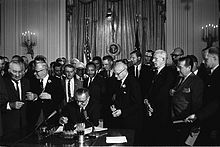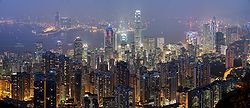Cross posted from The Stars Hollow Gazette
A year after electing its first democratically elected president, Egypt has once again erupted in revolt with millions of Egyptians taking to the streets to protest the government of Mohammed Morsi and the Muslim Brotherhood. The disputes began in November of last year over the creation of the Islamist-slanted constitution that was being fast-tracked through the parliament over secular objections accusing Morsi of acting like a dictator. Other complaints focused on favoritism towards Morsi’s allies for key government appointments, the repression of journalists and activists and the failure of to investigate abuses by the police after the deaths of 40 protesters during the unrest in Port Said in January. Since the protests began over the weekend 16 people have been killed including an American and the headquarters of the Muslim Brotherhoos has been ransacked and bburned.
Early Monday, the Egyptian military issued an ultimatum to Morsi and the opposition to resolve their differences in 48 hours or face intervention.
The military’s ultimatum seemed to leave Mr. Morsi few choices: cut short his term as president with a resignation or early elections; share significant power with a political opponent in a role such as prime minister; or attempt to rally his Islamist supporters to fight back for power in the streets. [..]
Citing “the historic circumstance,” the military council said in its statement that “if the demands of the people have not been met” within 48 hours then the armed forces would be forced by patriotic duty “to announce a road map of measures enforced under the military’s supervision” for the political factions to settle the crisis. [..]
It remained possible, though, that many might accept a less drastic power-sharing measure until the election of a new Parliament expected later this year, especially under military oversight.
But the military council also emphasized its reluctance to resume political power. It has made the same disclaimer at its seizure of power in 2011, but reiterated more vigorously on Monday.
In an interview with Amy Goodman and Nareem Shaihk on Monday’s Democracy Now, their correspondent in Cairo, Sharif Abdel Kouddous reported on the protests in Tahrir Square and the presidential palace.
Transcript can be read here
Egyptians to Morsi: ‘We Don’t Want You’
by Sharif Abdel Kouddous, The Nation
One year ago, many Egyptians had hoped the inauguration of the country’s first-ever democratically elected president would mark a turning point following decades of autocratic rule and a turbulent transition. Yet since Morsi took office, the political quagmire has only deepened, the economy has been in decline and daily life has become harder for most Egyptians.
The country is plagued by frequent fuel and diesel shortages that create long lines outside gas stations and cause incapacitating traffic jams. Electricity blackouts have become a daily routine during the hot summer months. Prices for food, medicine and other staple goods have sharply risen as the Egyptian pound has lost 10 percent of its value leaving already impoverished families less to live on. Unemployment is growing, tourism and investment are down sharply, the stock market hit an eleven-month low last week, while insecurity, crime and vigilante violence are on the rise. [..]
The frustration is palpable. During Morsi’s first year in office, Egypt witnessed over 9,400 demonstrations, according to a report published by the Cairo-based International Development Centre, more than anywhere in the world. The anti-government sentiment will culminate in mass protests on June 30, anticipation for which has built exponentially through a grassroots initiative that has collected millions of signatures on a petition whose slogan is a call for revolt: Tamarod, Arabic for “rebel.”





